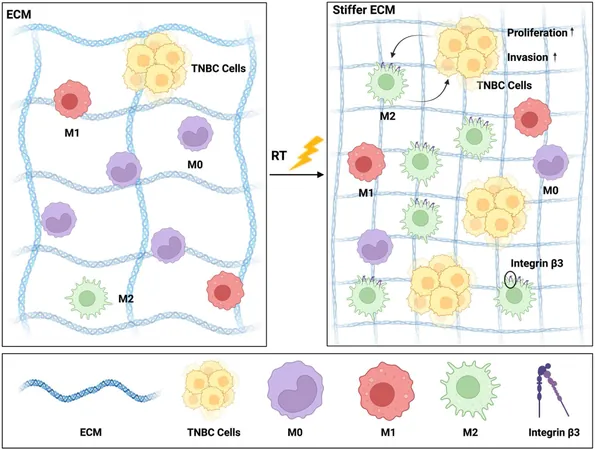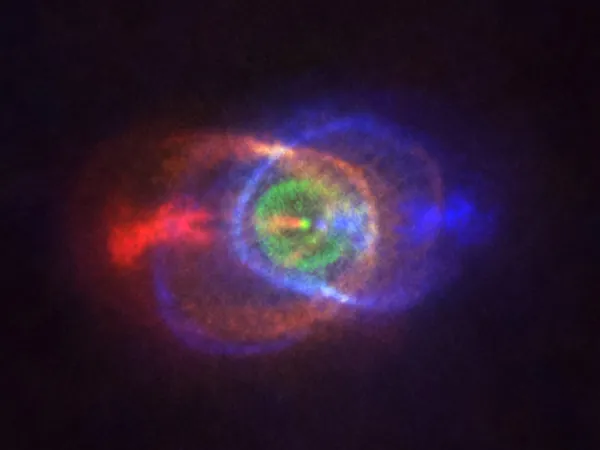
Shocking Discovery: Radiation Treatment May Actually Fuel Tumor Growth in Aggressive Breast Cancer!
2024-11-21
Author: Wei
Groundbreaking Study Unveils Surprising Effects of Radiation Therapy
In a groundbreaking study from Vanderbilt University, researchers have revealed that radiation therapy, a standard treatment for triple-negative breast cancer (TNBC) — known as one of the most aggressive forms of cancer — may unintentionally promote tumor recurrence.
Dual Nature of Radiation Therapy
Lead researcher Marjan Rafat, an assistant professor of chemical and biomolecular engineering, emphasized the dual nature of radiation therapy. While it is traditionally celebrated for enhancing survival rates and controlling the spread of TNBC, Rafat cautioned that it might create an immunosuppressed environment that encourages cancer cell proliferation. This alarming revelation challenges the efficacy of radiation therapy as a reliable treatment option for patients grappling with this lethal disease.
Study Findings and Extracellular Matrix Alterations
Published in the journal Biomaterials, the study investigates alterations in the extracellular matrix (ECM) — the intricate network of proteins and molecules that supports cellular structure. The findings indicate that irradiated breast tissue exhibited a significant increase in fiber density compared to non-irradiated samples. According to graduate student and lead author Tian Zhu, 'A more fibrous matrix provides a platform for cancer cells to thrive in the original tumor site.' Remarkably, this study is the first to measure the impact of radiation on the ECM within the breast microenvironment.
Innovative Research Methods
The research team, consisting of experts from Vanderbilt University Medical Center and institutions across Italy and the United States, meticulously examined irradiated mouse models. They developed unique mammary-derived hydrogels to simulate tumor cell interactions, allowing the researchers to recreate and study the disease in a controlled setting. It’s a significant step toward understanding how radiation changes the behavior of cancer cells.
Future Directions
Looking ahead, Zhu and the team are set to expand their research to human mammary cells and tissues. This progression could lead to improved clinical strategies that enhance the effectiveness of radiation therapy while minimizing the risk of breast cancer recurrence.
Implications for Cancer Treatment
This revelation serves as a clarion call for the medical community to reevaluate the conventional approaches to treating TNBC, and it raises urgent questions about how treatment protocols can be adapted to prevent the very outcomes they aim to combat. The fight against cancer is about to get a lot more complicated — will new strategies emerge from this shocking finding? Stay tuned as we keep you updated on the evolving landscape of breast cancer research!



 Brasil (PT)
Brasil (PT)
 Canada (EN)
Canada (EN)
 Chile (ES)
Chile (ES)
 España (ES)
España (ES)
 France (FR)
France (FR)
 Hong Kong (EN)
Hong Kong (EN)
 Italia (IT)
Italia (IT)
 日本 (JA)
日本 (JA)
 Magyarország (HU)
Magyarország (HU)
 Norge (NO)
Norge (NO)
 Polska (PL)
Polska (PL)
 Schweiz (DE)
Schweiz (DE)
 Singapore (EN)
Singapore (EN)
 Sverige (SV)
Sverige (SV)
 Suomi (FI)
Suomi (FI)
 Türkiye (TR)
Türkiye (TR)